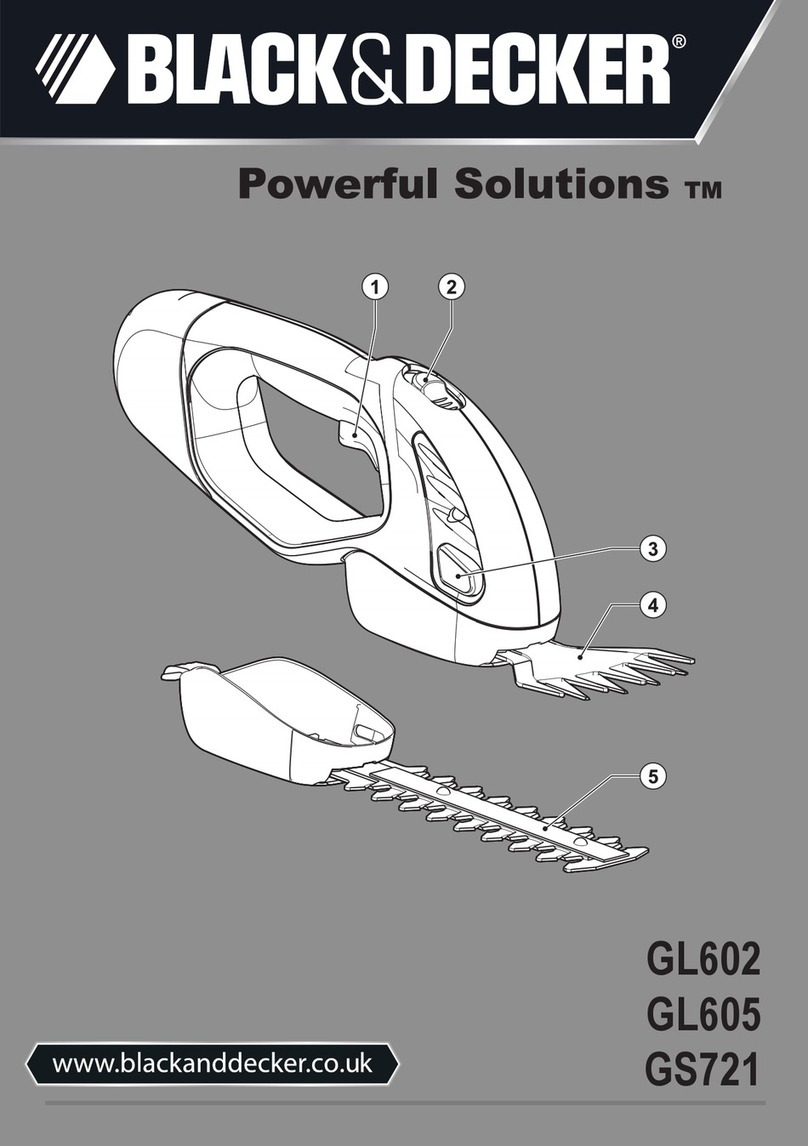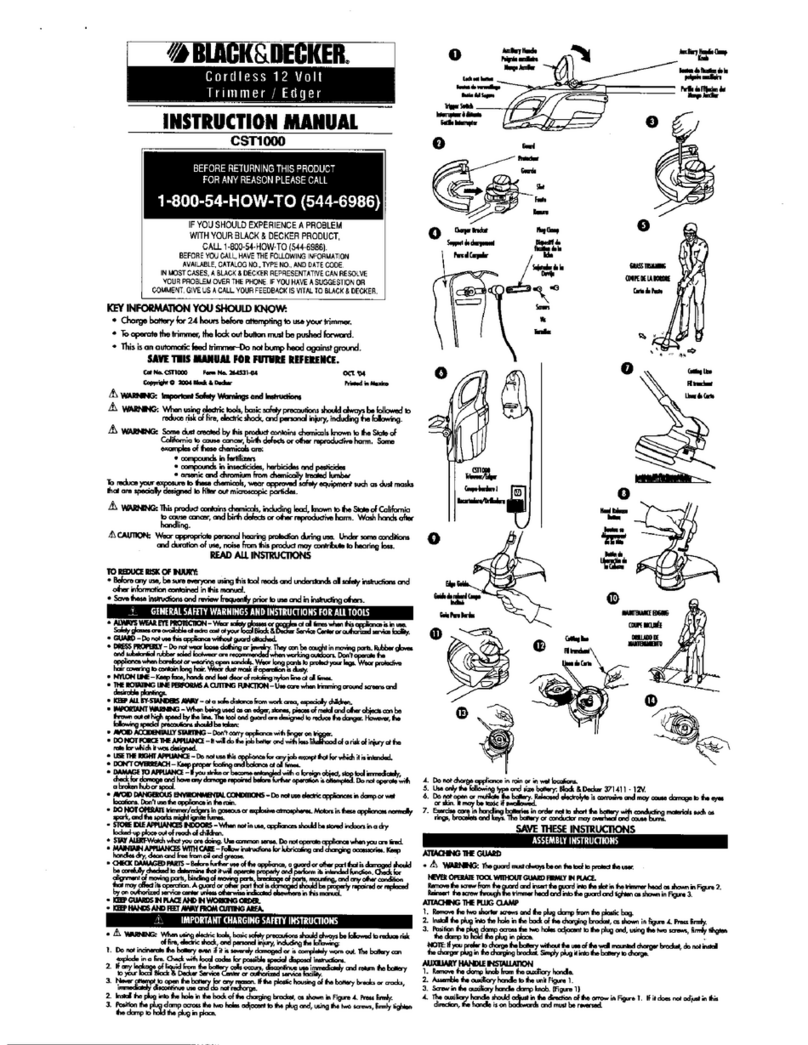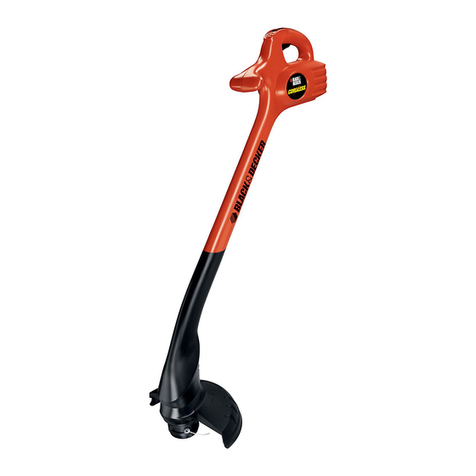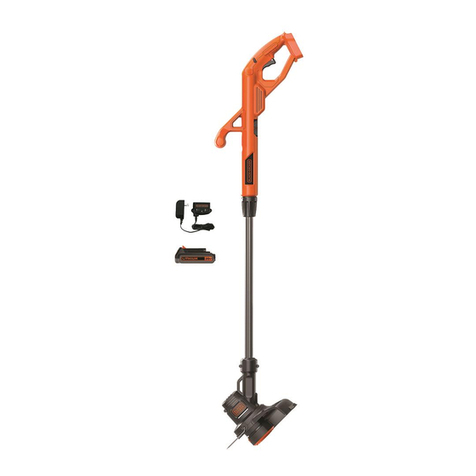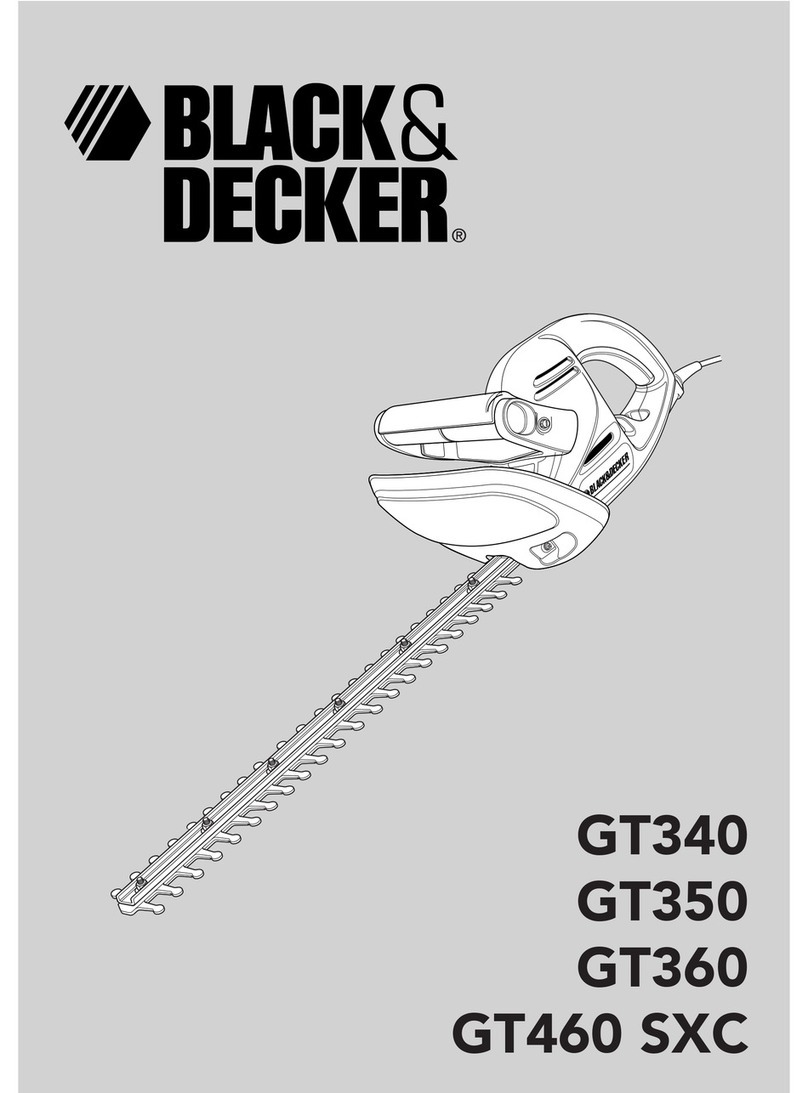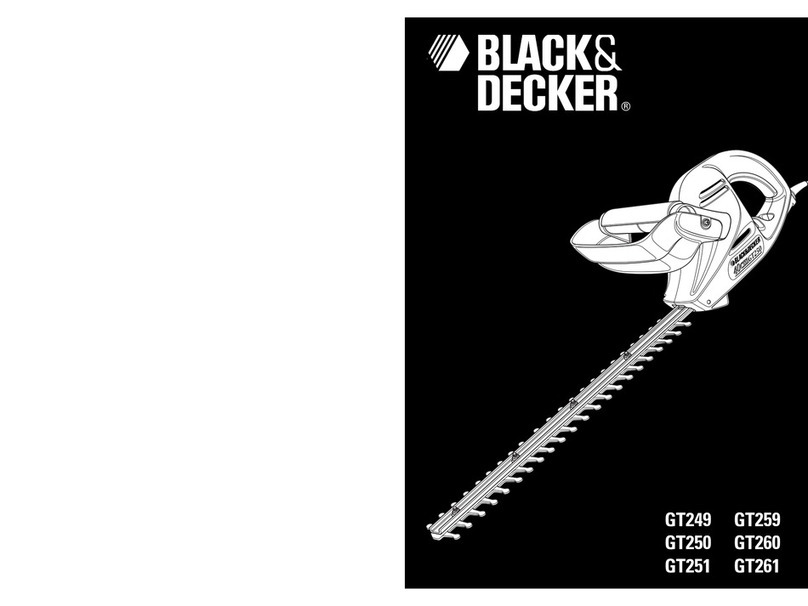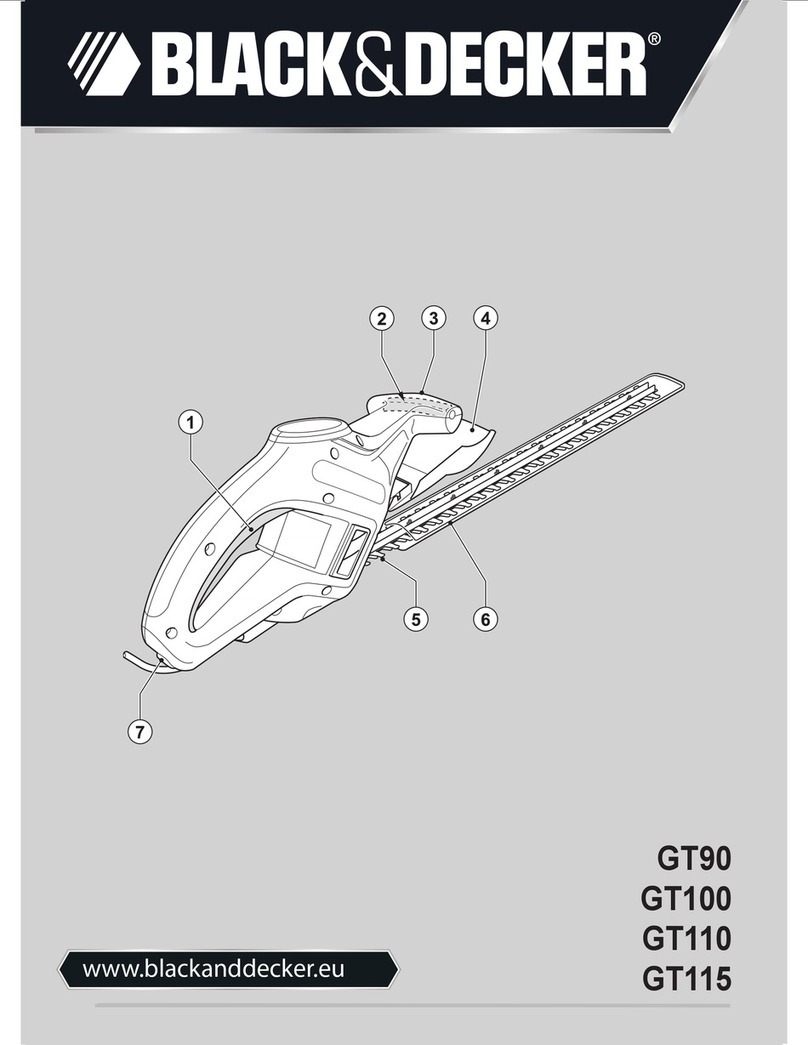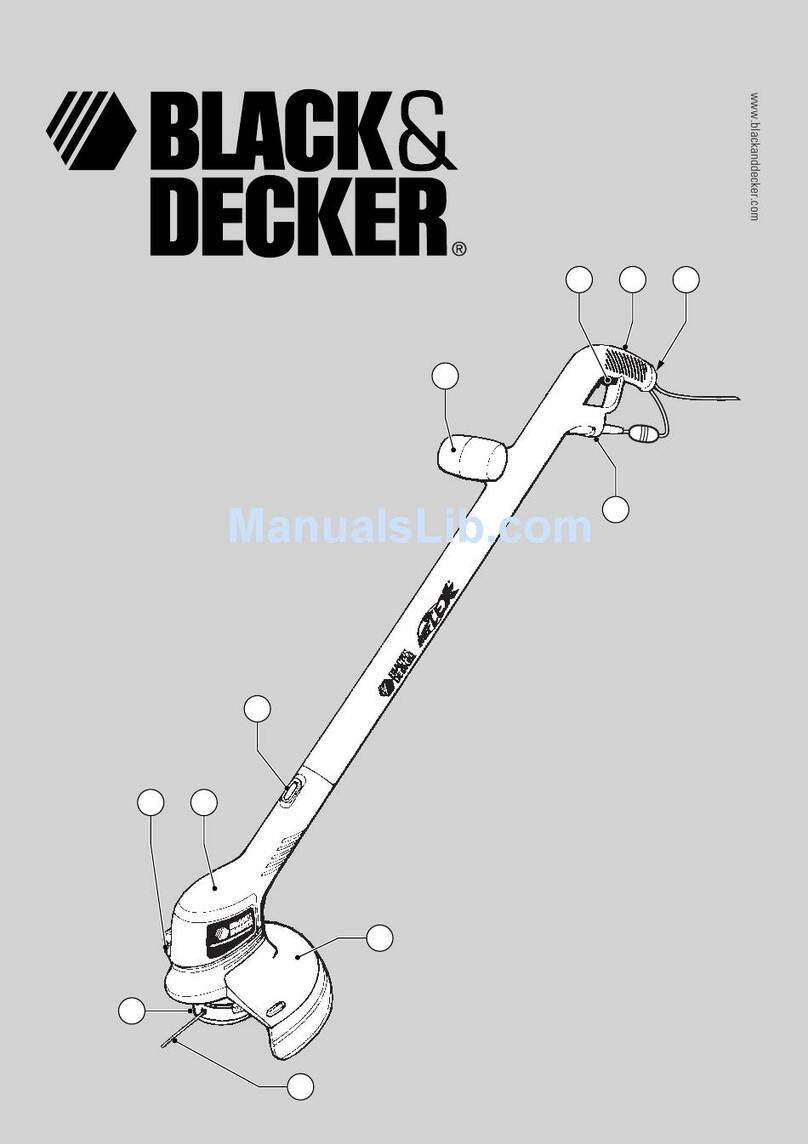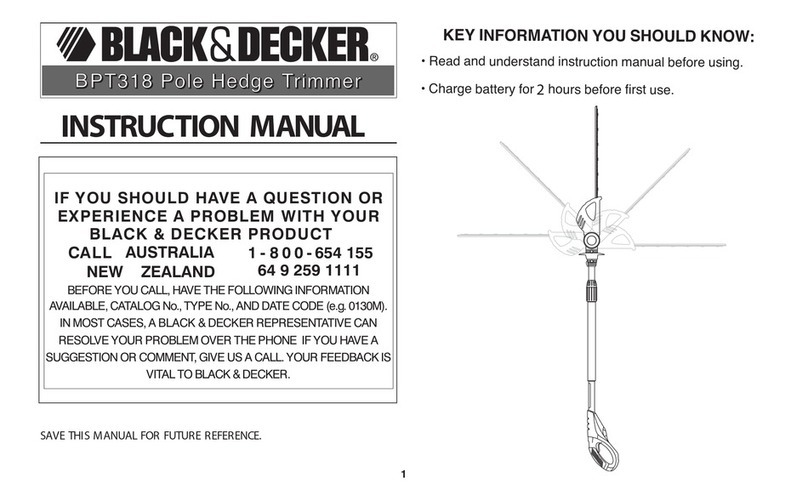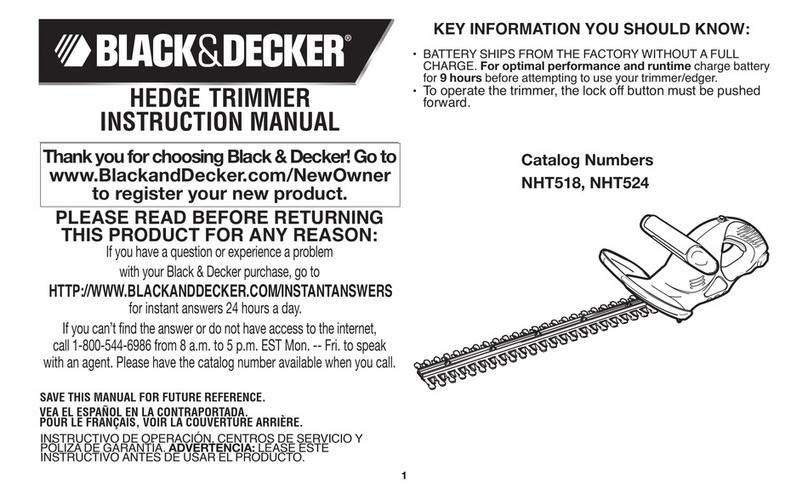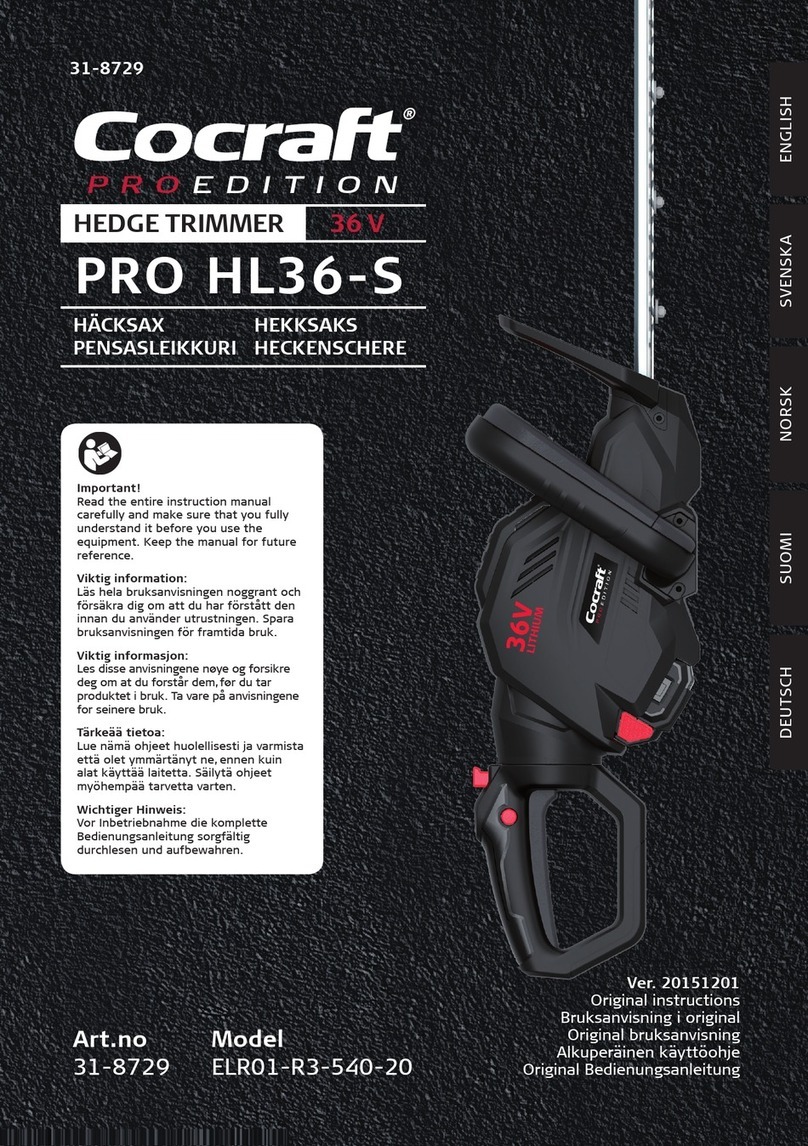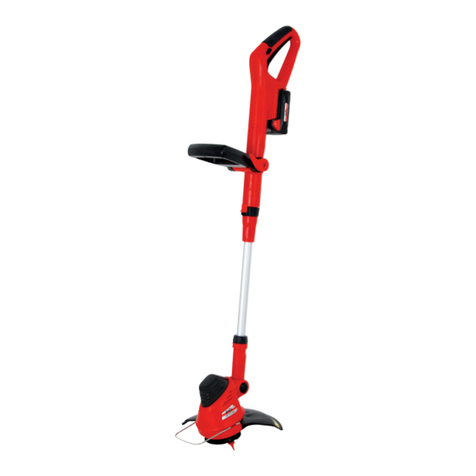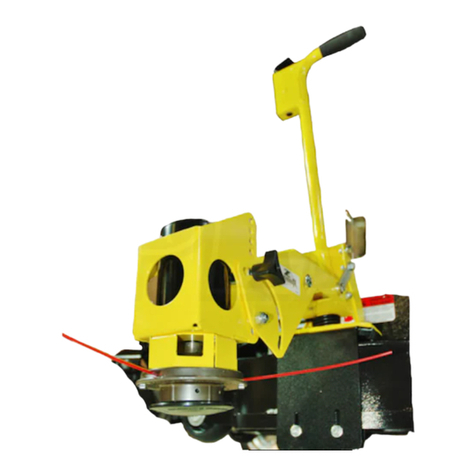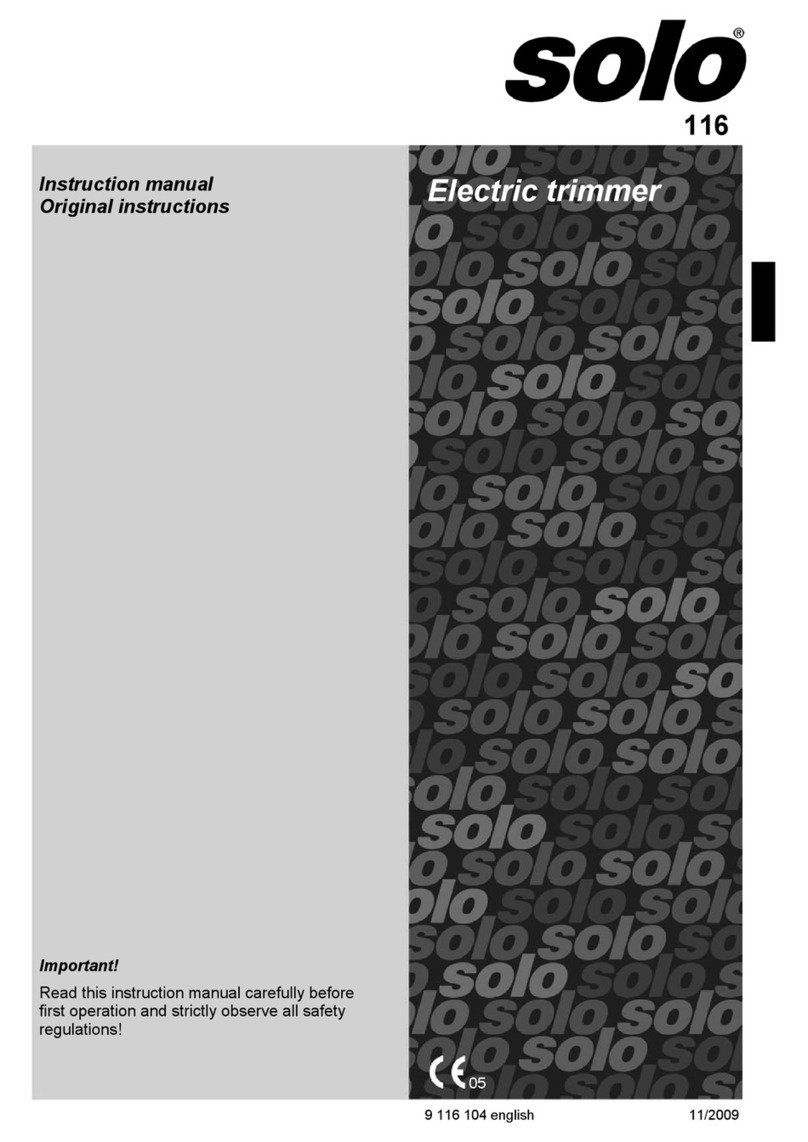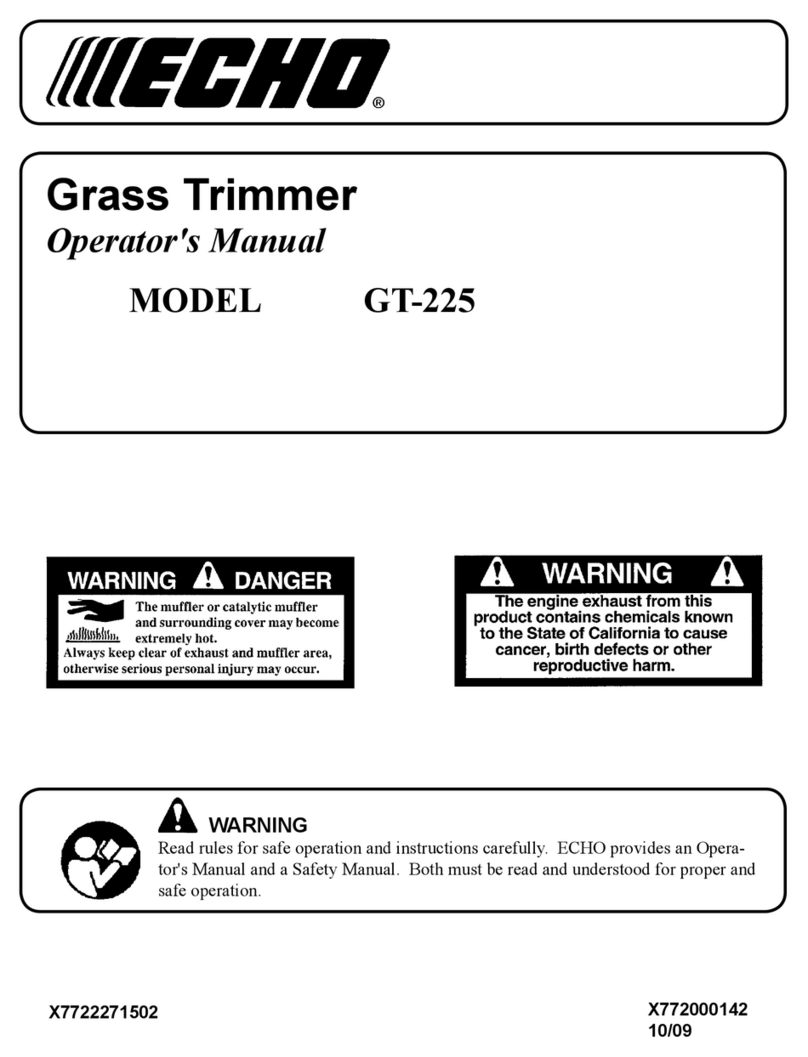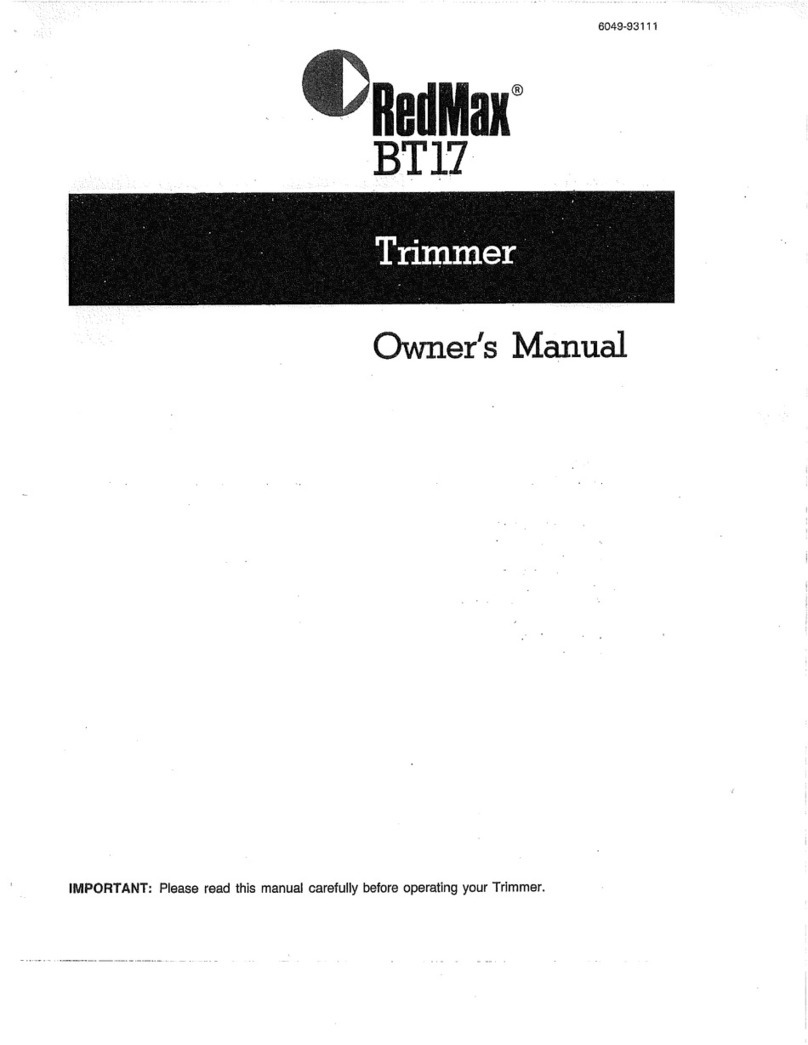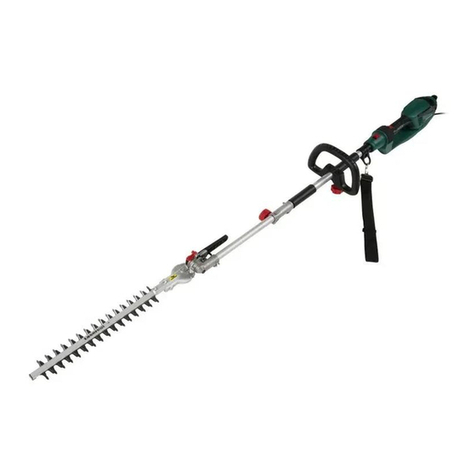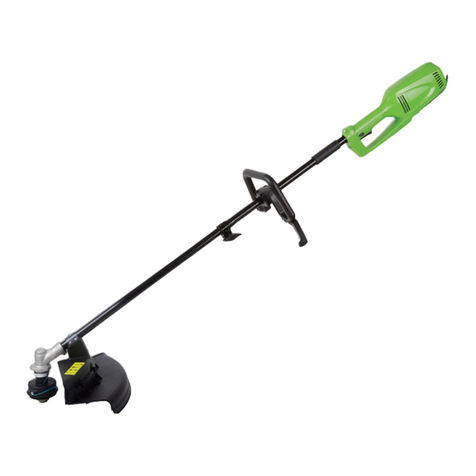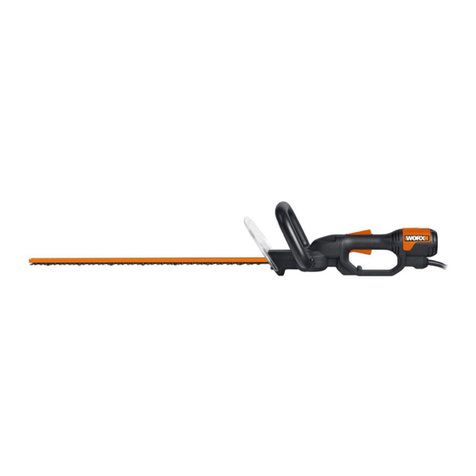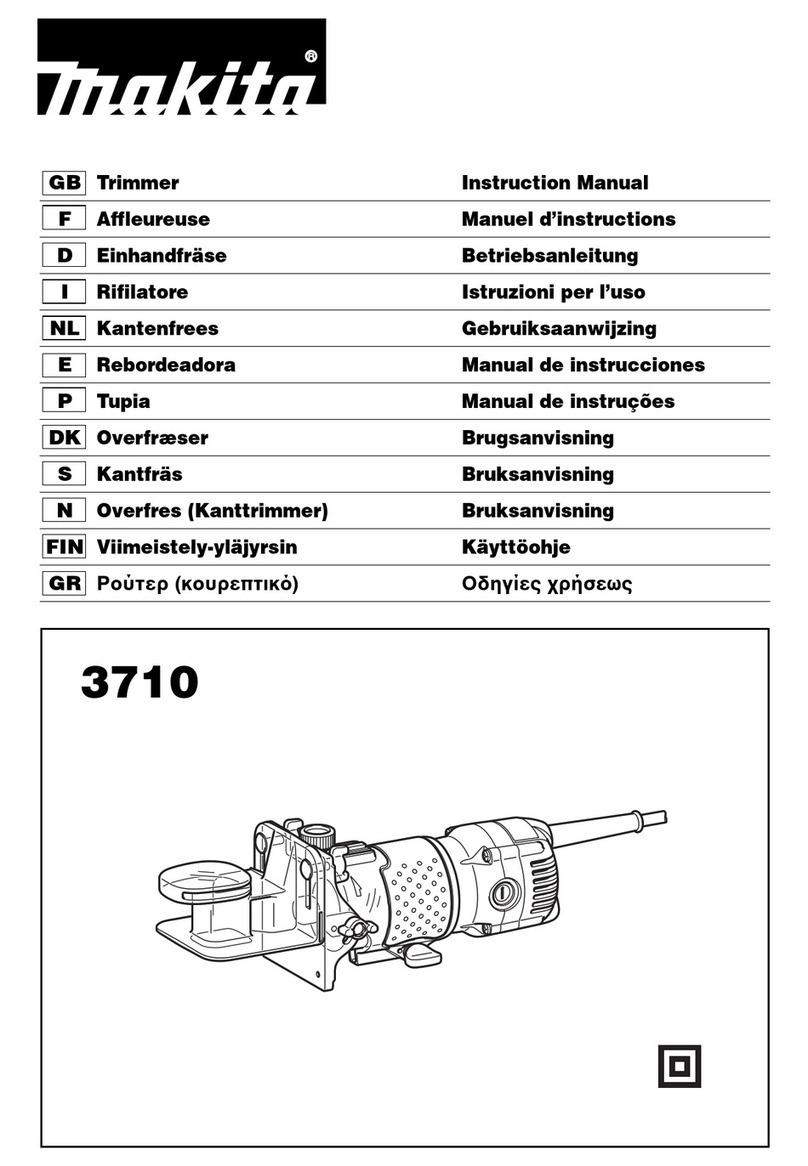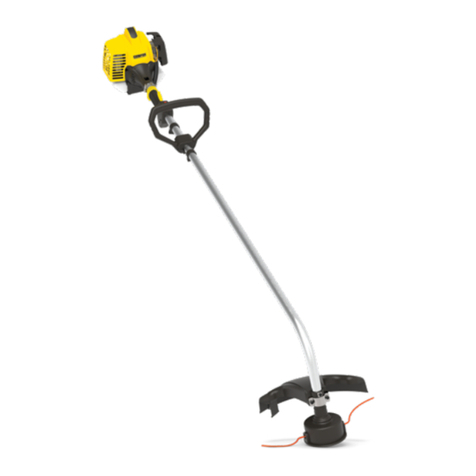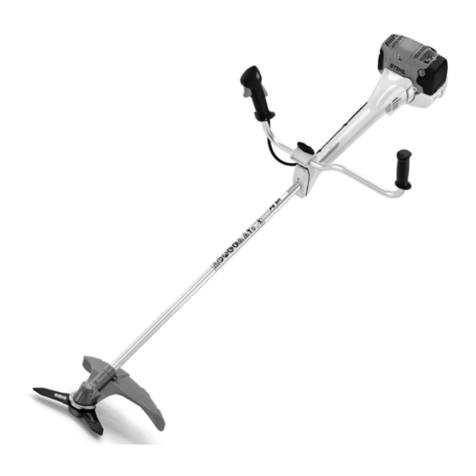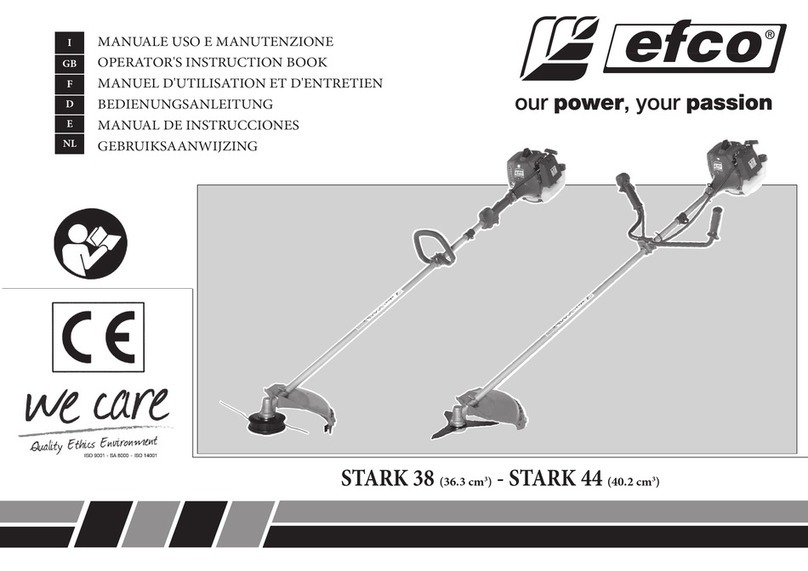
6
irritation. Provid fr sh air. If symptoms p rsist, s k m dical
att ntion.
WARNING: Burn hazard. Batt ry liquid may b flammabl if
xpos d to spark or flam .
•Charg th batt ry packs only in Black & Decker charg rs.
•DO NOT splash or immerse in water or other liquids. This may
caus pr matur c ll failur .
•Do not store or use the tool and battery pack in locations where
the temperature may reach or exceed 105°F (40˚C) (such as
outside sheds or metal buildings in summer).
WARNING: N v r att mpt to op n th batt ry pack for any
r ason. If batt ry pack cas is crack d or damag d, do not ins rt into
charg r. Do not crush, drop or damag batt ry pack. Do not us a
batt ry pack or charg r that has r c iv d a sharp blow, b n
dropp d, run ov r or damag d in any way (i. ., pi rc d with a nail,
hit with a hamm r, st pp d on). Damag d batt ry packs should b
r turn d to s rvic c nt r for r cycling.
WARNING: Fire hazard. Do not store or carry battery so
that metal objects can contact exposed battery terminals. For
xampl , do not plac batt ry in aprons, pock ts, tool box s, product
kit box s, draw rs, tc., with loos nails, scr ws, k ys, tc.
Transporting batteries can possibly cause fires if the battery
terminals inadvertently come in contact with conductive
materials such as keys, coins, hand tools and the like. Th US
D partm nt of Transportation Hazardous Mat rial R gulations (HMR)
actually prohibit transporting batt ri s in comm rc or on airplan s
(i. ., pack d in suitcas s and carry-on luggag ) UNLESS th y ar
prop rly prot ct d from short circuits. So wh n transporting individual
batt ri s, mak sur that th batt ry t rminals ar prot ct d and w ll
insulat d from mat rials that could contact th m and caus a short
circuit. NOTE: Batteries should not be put in checked baggage.
STORAGE RECOMMENDATIONS
1. The best storage place is one that is cool and dry away from
direct sunlight and excess heat or cold.
2. Long storage will not harm the battery pack or charger.
CHARGING PROCEDURE
The standard charger provided will charge a fully depleted battery in
about 2 hours.
1. Plug the charger into an appropriate outlet before inserting the
battery pack.
2. Insert the battery pack into the charger
as shown in figure A.
3. The green LED will flash
indicating that the battery is being
charged.
4. The completion of charge is
indicated by the green LED
remaining on continuously. The pack
is fully charged and may be used at
this time or left on the charger.
Recharge discharged batteries as soon
as possible after use or battery life may be greatly diminished.
CHARGER DIAGNOSTICS
This charger is designed to detect certain problems that can arise
with the battery packs or the power source. Problems are indicated
by one LED flashing in different patterns.
BAD BATTERY
The charger can detect a weak or damaged battery. The red
LED flashes in the pattern indicated on the label. If you see
this bad battery blink pattern, do not continue to charge the
battery. Return it to a service center or a collection site for
recycling.
HOT/COLD PACK DELAY
When the charger detects a battery that is excessively hot or
excessively cold, it automatically starts a ot/Cold Pack
Delay, suspending charging until the battery has normalized.
After this happens, the charger automatically switches to the
Pack Charging mode. This feature ensures maximum battery
life. The red LED flashes in the pattern indicated on the label
when the hot / cold pack delay is detected.
A




